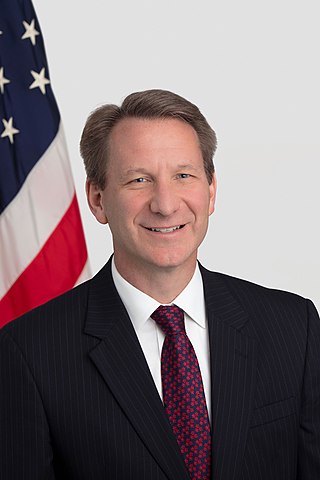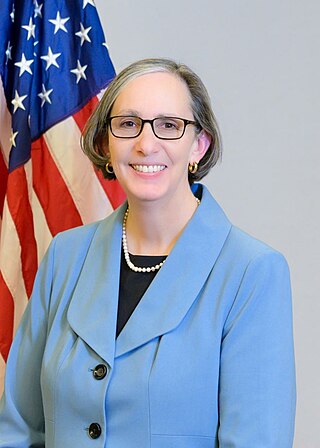The National Cancer Institute (NCI) coordinates the United States National Cancer Program and is part of the National Institutes of Health (NIH), which is one of eleven agencies that are part of the U.S. Department of Health and Human Services. The NCI conducts and supports research, training, health information dissemination, and other activities related to the causes, prevention, diagnosis, and treatment of cancer; the supportive care of cancer patients and their families; and cancer survivorship.
NCI-designated Cancer Centers are a group of 72 cancer research institutions in the United States supported by the National Cancer Institute.

UNC Health is a not-for-profit medical system owned by the State of North Carolina and based in Chapel Hill, North Carolina at the University of North Carolina at Chapel Hill. It provides services throughout the Research Triangle and North Carolina. UNC Health was created in 1998, when the North Carolina General Assembly passed legislation that established the UNC Health Care System, bringing under one entity UNC Hospitals and the clinical programs of the UNC School of Medicine. In 2018, the system reported over 3.5 million outpatient visits and over 500,000 emergency visits.

The University of North Carolina School of Medicine is the medical school of the University of North Carolina at Chapel Hill. It offers a Doctor of Medicine degree along with combined Doctor of Medicine / Doctor of Philosophy or Doctor of Medicine / Master of Public Health degrees.

Yale Cancer Center (YCC) was founded in 1974 as a result of an act of Congress in 1971, which declared the nation's "war on cancer". It is one of a network of 56 Comprehensive Cancer Centers designated by the National Cancer Institute (NCI). Currently directed by Dr. Eric Winer, the Cancer Center brings together the resources of the Yale School of Medicine (YSM), Yale New Haven Hospital (YNHH), and the Yale School of Public Health (YSPH).

Dr. William E. Evans, Pharm.D. served as St. Jude Children’s Research Hospital’s fifth director and CEO from 2004 to 2014. From 1986 to 2002, he chaired the St. Jude Department of Pharmaceutical Sciences, and from 2002 to 2004 served as the hospital’s scientific director and executive vice president. He also currently holds the St. Jude Professorship and Endowed chair at the University of Tennessee College of Medicine and Pharmacy.

Edison T. Liu is an American chemist who is the former president and CEO of The Jackson Laboratory, and the former director of its NCI-designated Cancer Center (2012-2021). Before joining The Jackson Laboratory, he was the founding executive director of the Genome Institute of Singapore (GIS), chairman of the board of the Health Sciences Authority, and president of the Human Genome Organization (HUGO) (2007-2013). As the executive director of the GIS, he brought the institution to international prominence as one of the most productive genomics institutions in the world.

The UPMC Hillman Cancer Center, previously the University of Pittsburgh Cancer Institute (UPCI), is a National Cancer Institute (NCI)-designated Comprehensive Cancer Center located in the Hillman Cancer Center in the Shadyside neighborhood of Pittsburgh, adjacent to UPMC Shadyside. The only NCI-designated cancer center in Western Pennsylvania, Hillman is composed of collaborative academic and research efforts between the University of Pittsburgh, the University of Pittsburgh Medical Center (UPMC), and Carnegie Mellon University. Hillman provides clinical cancer care to some 74,000 patients treated at its facilities at both the Hillman Cancer Center location in the Shadyside neighborhood of Pittsburgh and at UPMC-affiliated sites throughout Pennsylvania, New York, Ohio, and overseas locations. Founded in 1984, Hillman became the youngest cancer center in history to achieve NCI-designation. As of 2007, Hillman had received nearly $200 million in funding from the National Cancer Institute, which ranks it as one of the top ten cancer research institutes.
Medical centers in the United States are conglomerations of health care facilities including hospitals and research facilities that also either include or are closely affiliated with a medical school.
The University of Wisconsin Carbone Cancer Center (UWCCC) is a comprehensive cancer center in Wisconsin, as designated by the National Cancer Institute (NCI), the lead federal agency for cancer research. It is an integral part of both the University of Wisconsin (UW) and the University of Wisconsin Hospital and Clinics. It is located in Madison, Wisconsin.
Gibbs Cancer Center & Research Institute is a cancer treatment and research facility in Upstate South Carolina. Gibbs Cancer Center is associated with the NCI Community Cancer Centers Program and the Medical University of South Carolina. Gibbs has several locations across the upstate of South Carolina, including Comprehensive Cancer Centers at both Spartanburg Medical Center and Pelham Medical Center. Additional infusion facilities are located in Gaffney, Union, Mary Black and North Grove.

Norman Edward "Ned" Sharpless is the previous Director of the National Cancer Institute (NCI). Before that, Sharpless was Professor of Medicine and Genetics Chair, Director of University of North Carolina UNC Lineberger Comprehensive Cancer Center, Molecular Therapeutics, Wellcome Distinguished Professorship in Cancer Research.

Blossom Damania is a virologist at the University of North Carolina at Chapel Hill. She is known for her work on oncogenic viruses that cause human cancer. Damania has also been serving as vice dean for research at the UNC Chapel Hill School of Medicine since 2016.
Bryce Byrum Reeve III is an American psychometrician, outcomes research scientist, professor of Health Policy and Management at the UNC Gillings School of Global Public Health, and faculty expert at the UNC Lineberger Comprehensive Cancer Center. He is a prominent figure in quantitative research on improving the measurement of patient-reported health outcomes.
Richard Jude Samulski is an American scientist, inventor, and academic recognized for his pioneering work in gene therapy and adeno-associated virus vectors (AAV) in the fields of molecular virology and pharmacology.

UNC Medical Center (UNCMC) is a 932-bed non-profit, nationally ranked, public, research and academic medical center located in Chapel Hill, North Carolina, providing tertiary care for the Research Triangle, surrounding areas and North Carolina. The medical center is the flagship campus of the UNC Health Care Health System and is made up of four hospitals that include the North Carolina Memorial Hospital, North Carolina Children's Hospital, North Carolina Neurosciences Hospital, North Carolina Women's Hospital, and the North Carolina Cancer Hospital. UNCMC is affiliated with the University of North Carolina School of Medicine. UNCMC features an ACS designated adult and pediatric Level 1 Trauma Center and has a helipad to handle medevac patients.
Wendy Rosamund Brewster was a British-born American gynaecologist who was Professor of Obstetrics and Gynaecology and Director of the Center for Women's Health Research at the University of North Carolina at Chapel Hill.
David "Neil" Hayes is an American oncologist and physician–scientist. He is the Van Vleet Endowed Professor in Medical Oncology and the division chief of haematology and oncology at the University of Tennessee Health Science Center. As a result of his research, Hayes was elected a Member of the American Society for Clinical Investigation.

W. Kimryn Rathmell is an American physician-scientist whose work focuses on the research and treatment of patients with kidney cancers. She is the 17th Director of the National Cancer Institute, having previously served as the Hugh Jackson Morgan Professor and Chair of the Department of Medicine at Vanderbilt University Medical Center (VUMC), and Physician-in-Chief for Vanderbilt University Adult Hospital and Clinics in Nashville, Tennessee. On November 17, 2023, Rathmell was nominated by President Biden as the next Director of the National Cancer Institute and she assumed office on December 18, 2023.

Mary Lou McMaster is an American oncologist and clinical trialist who researches familial cancer genetics. She is a senior clinical trial specialist at the National Cancer Institute and a captain in the United States Public Health Service Commissioned Corps.












